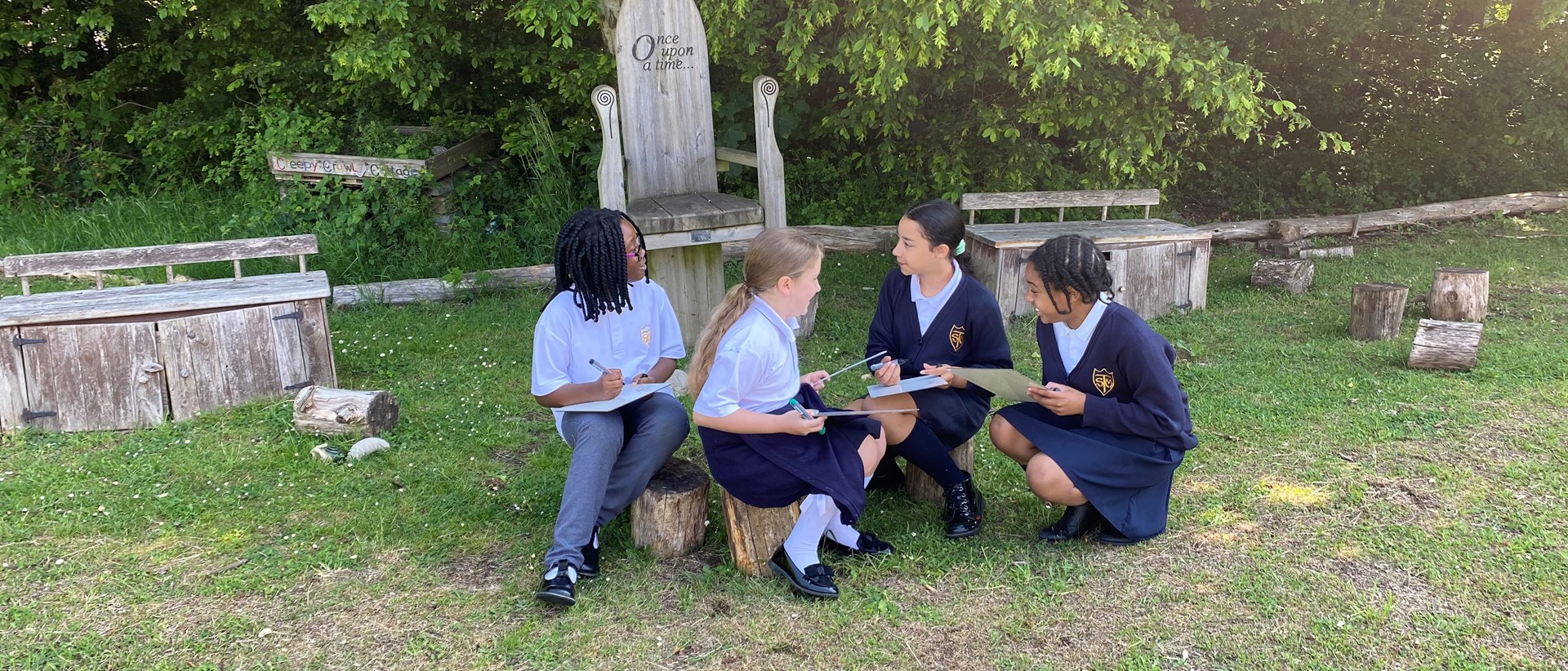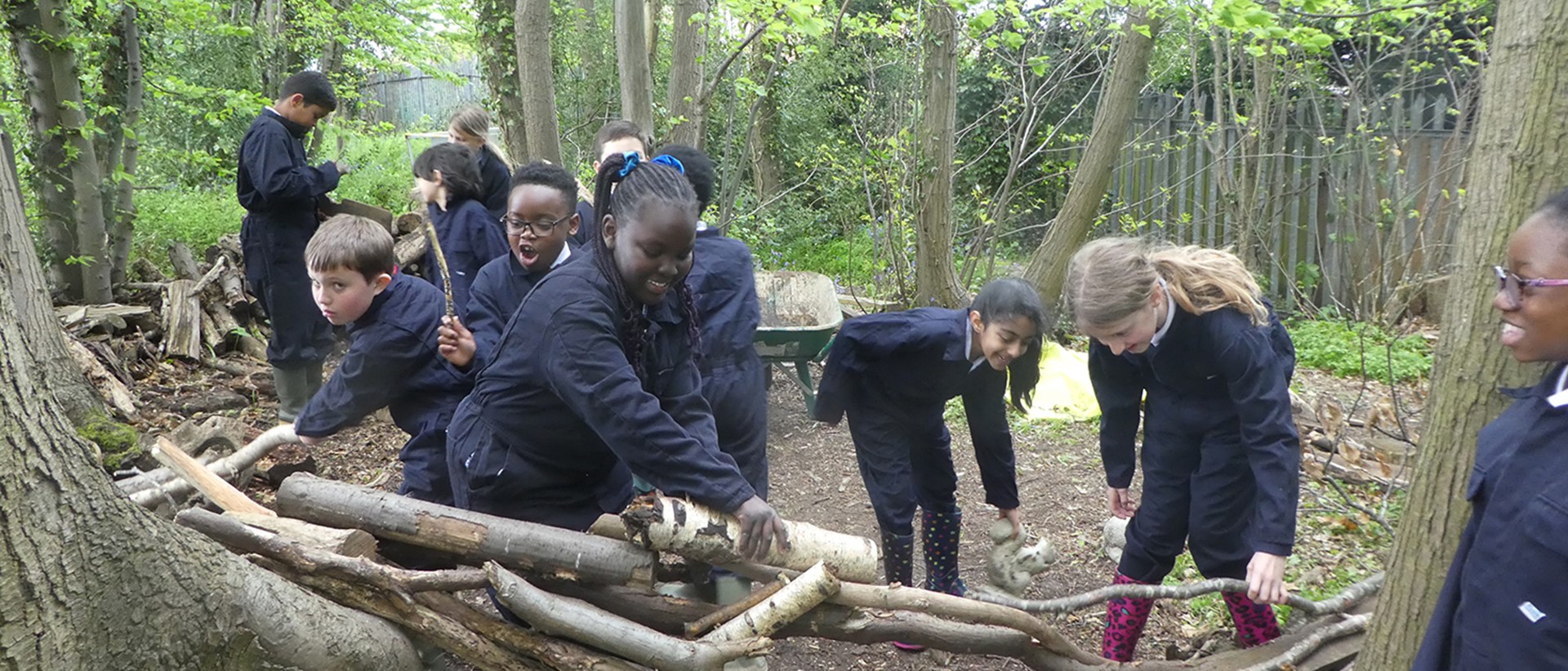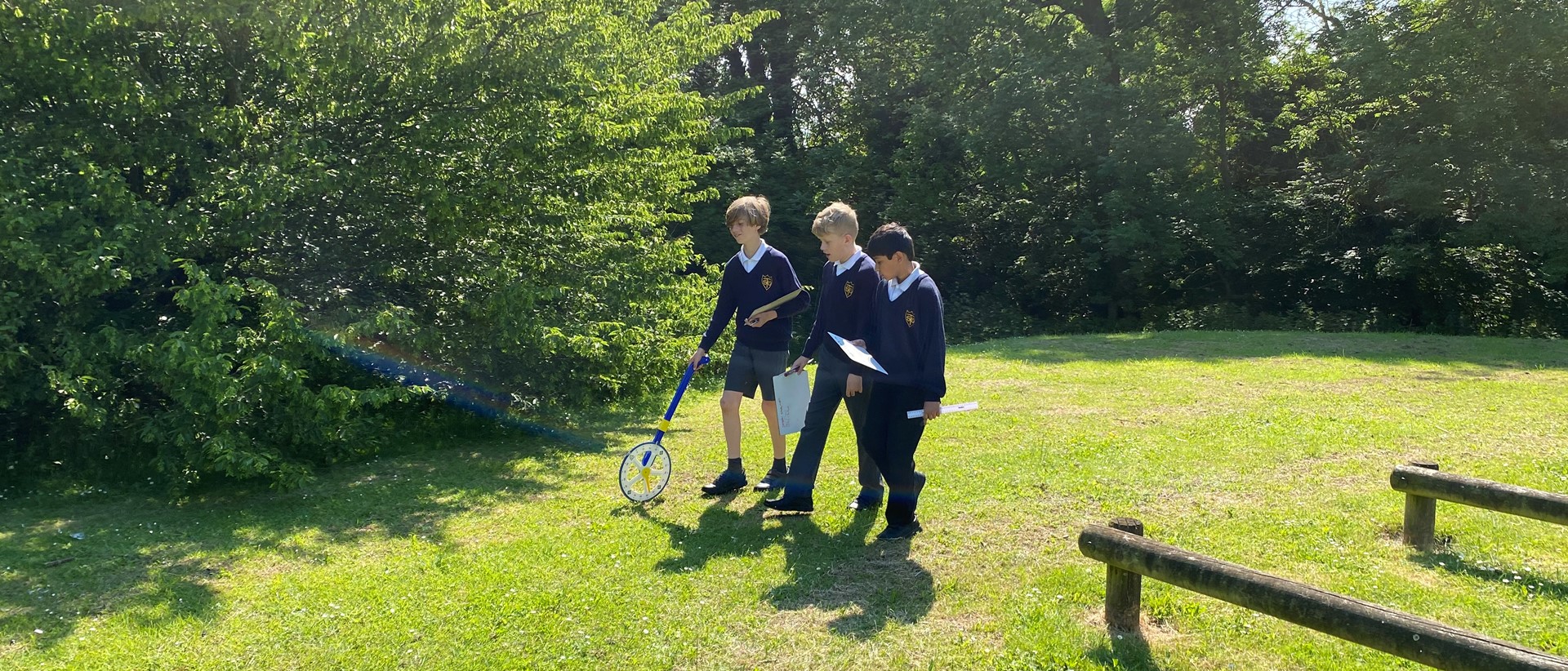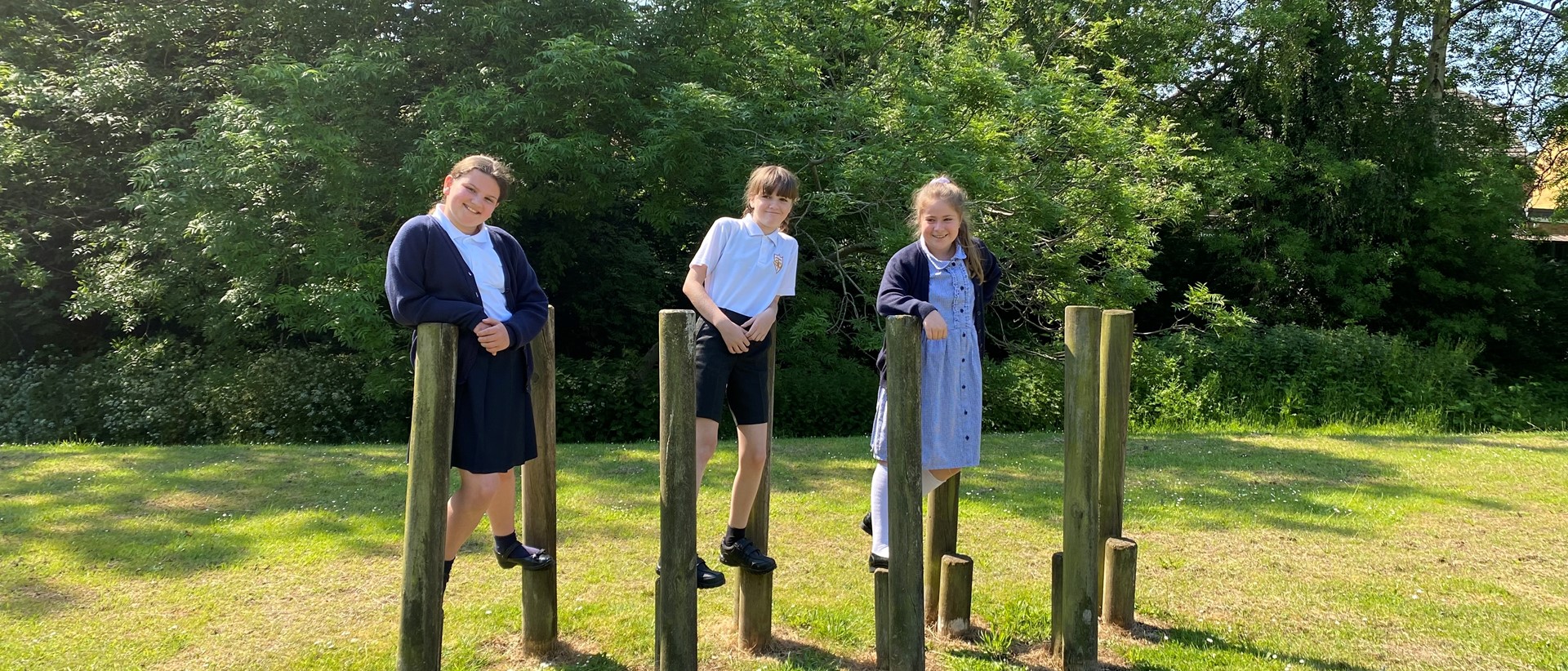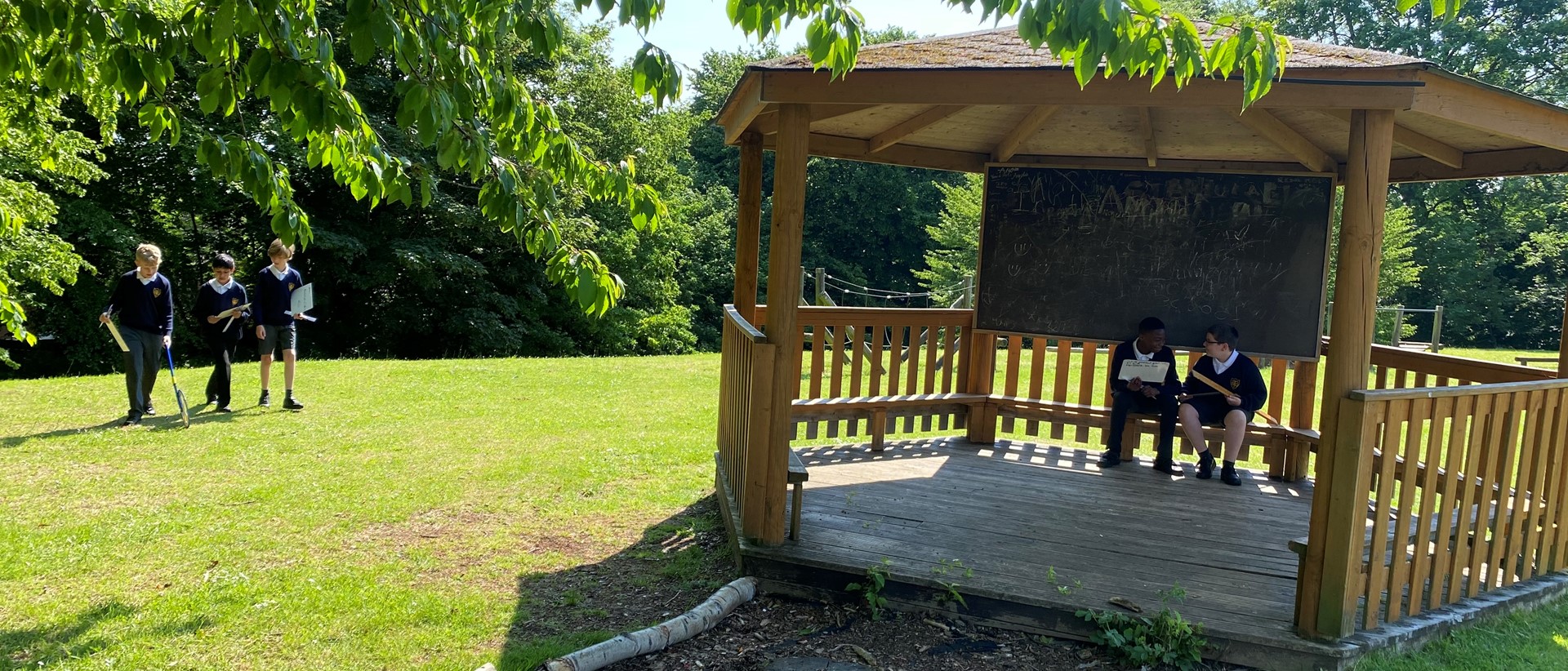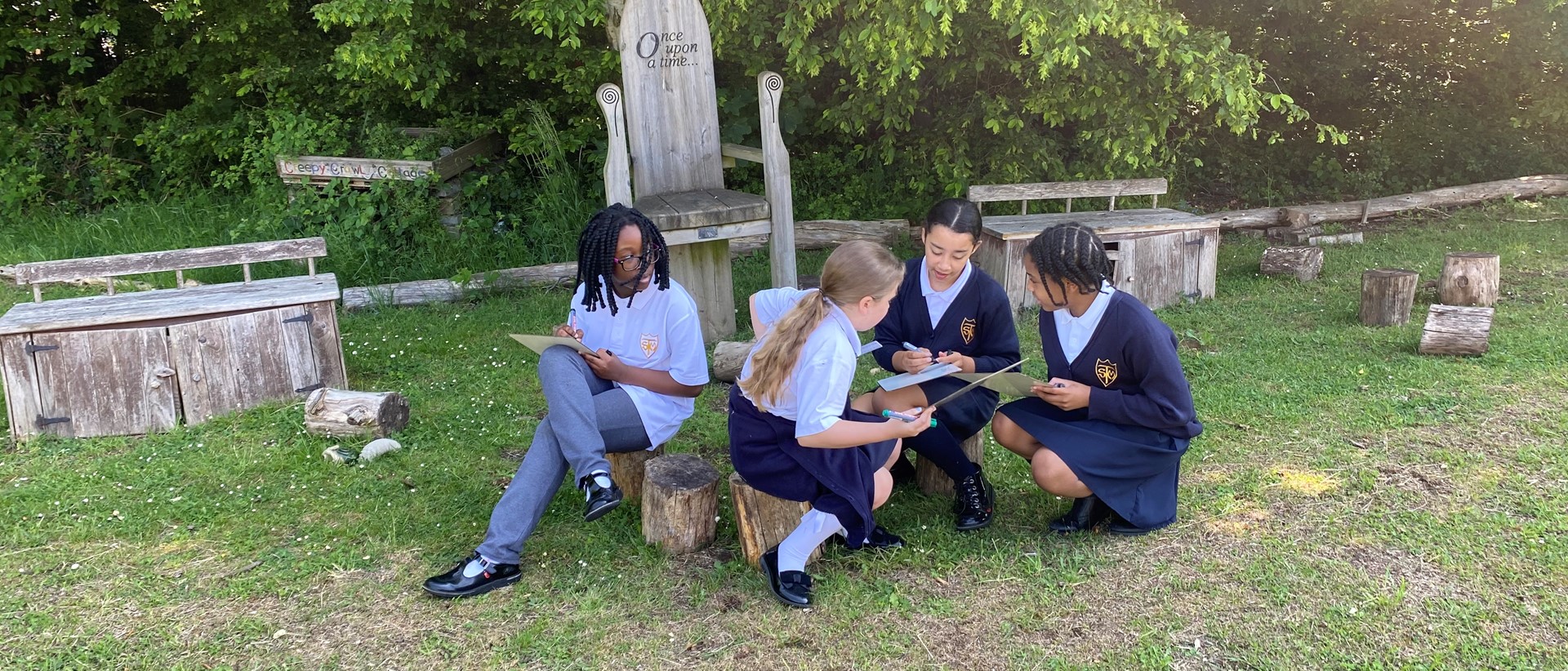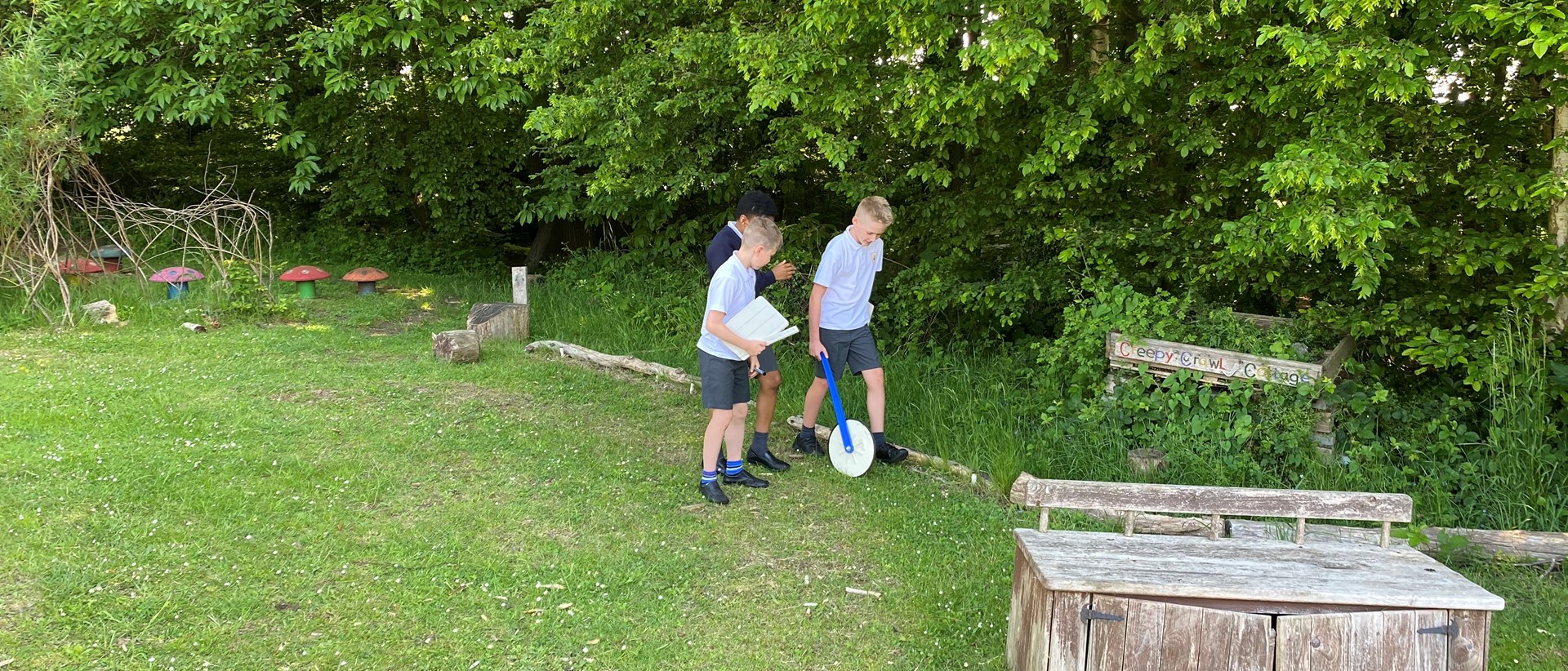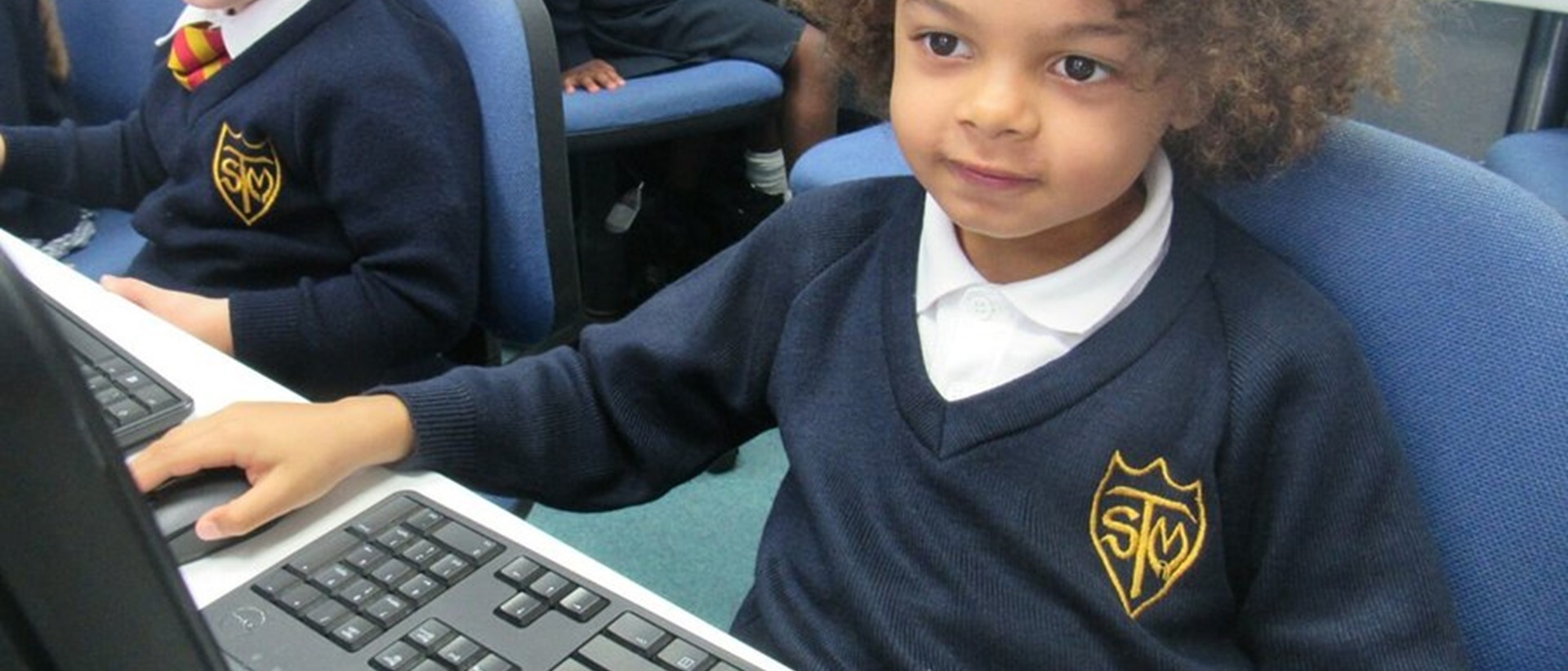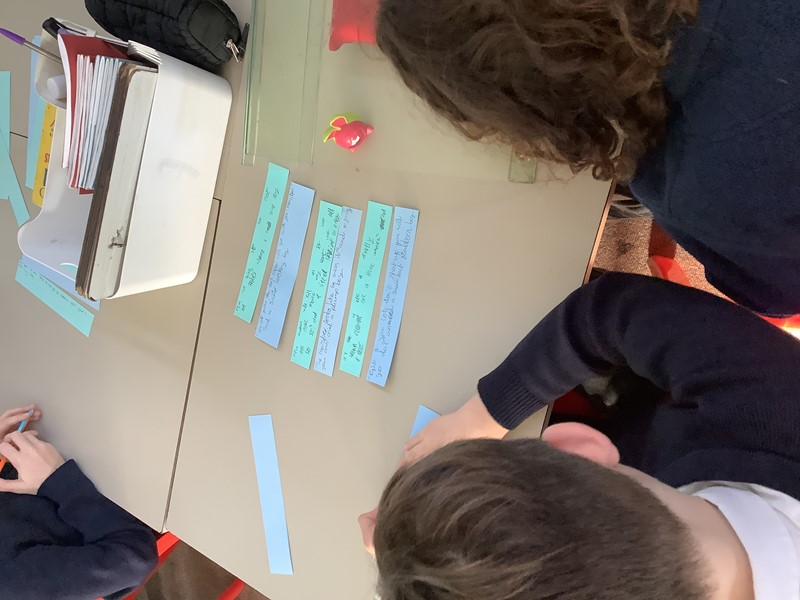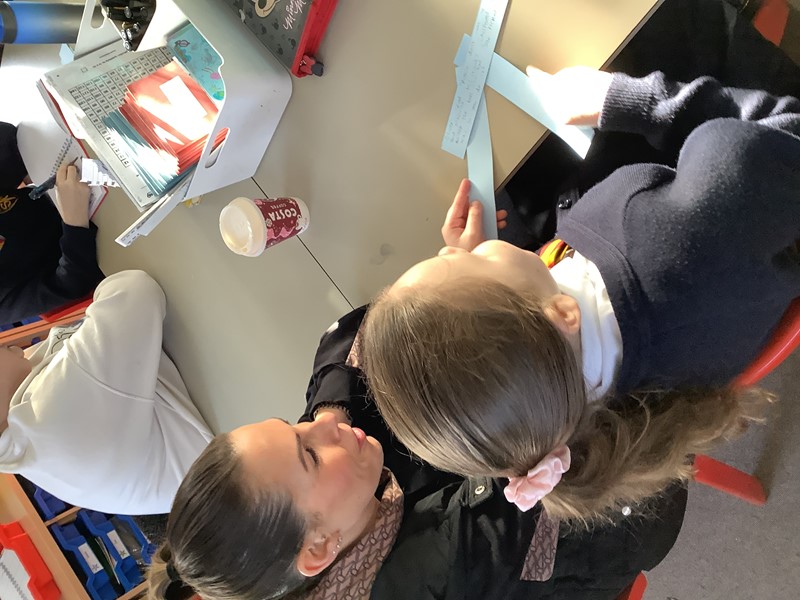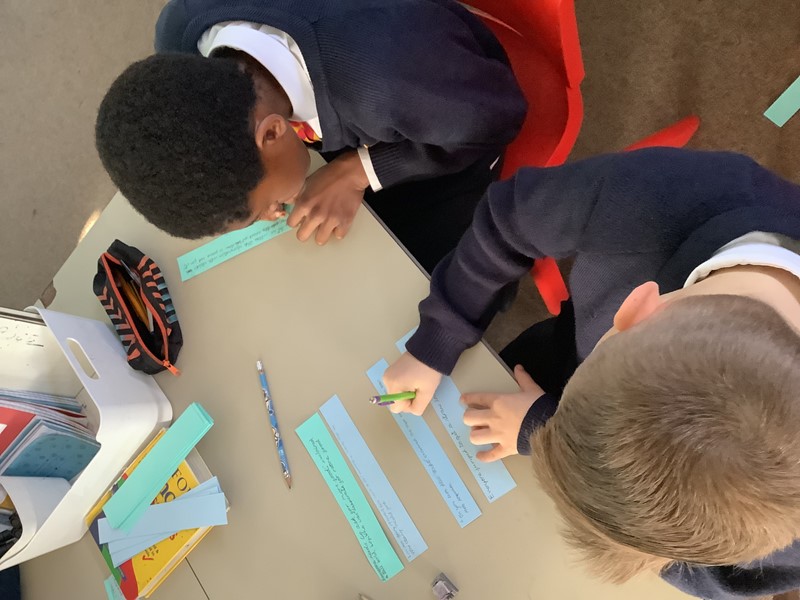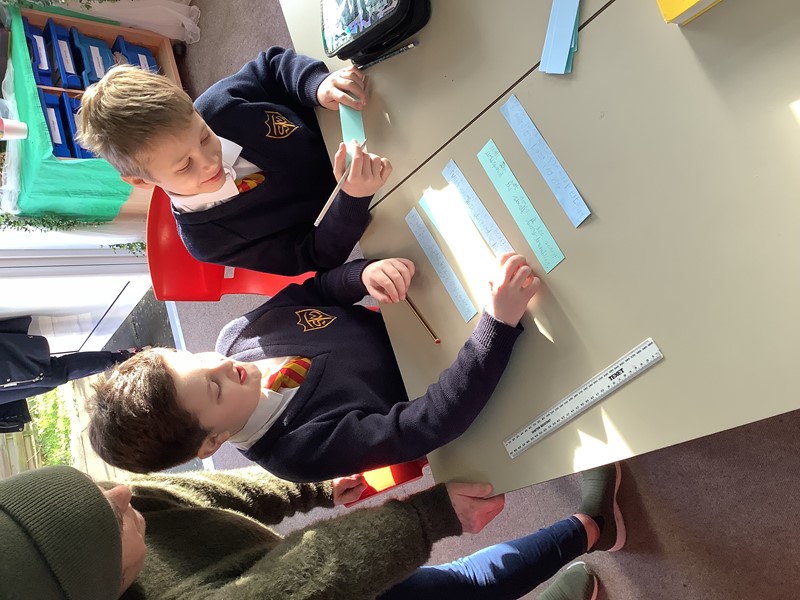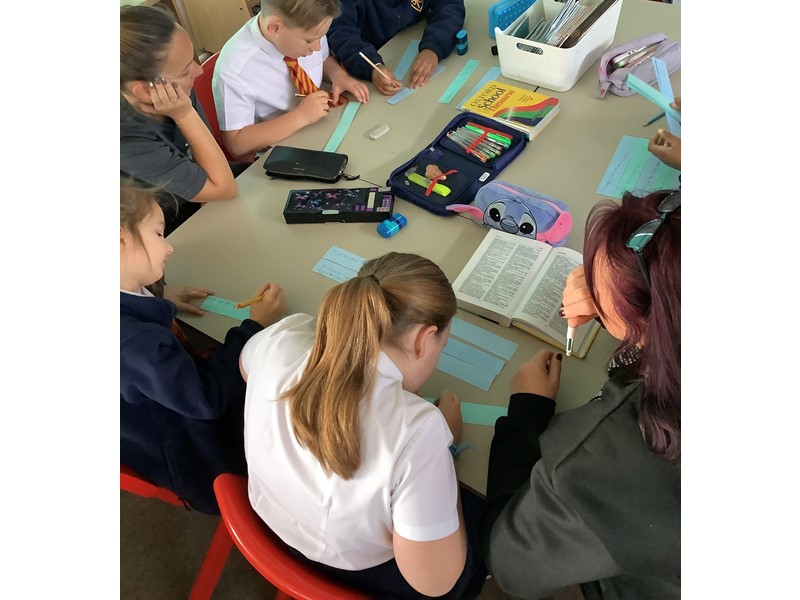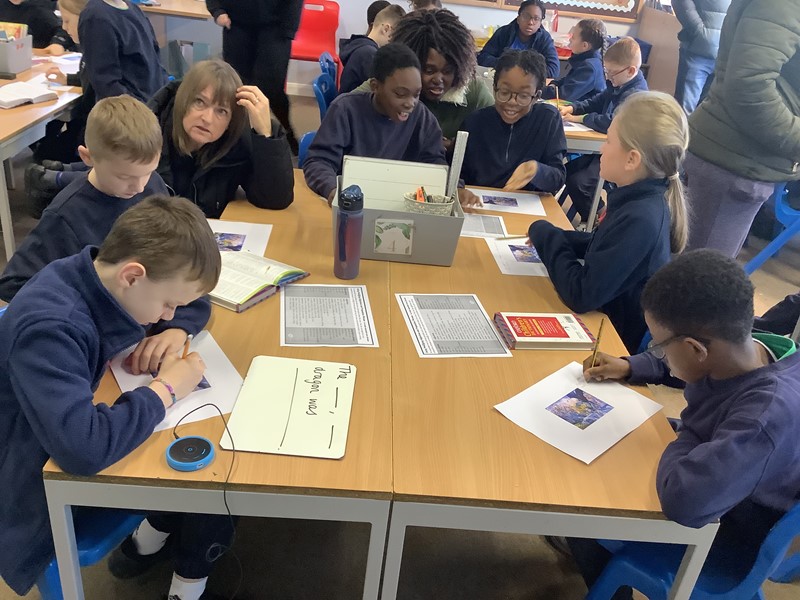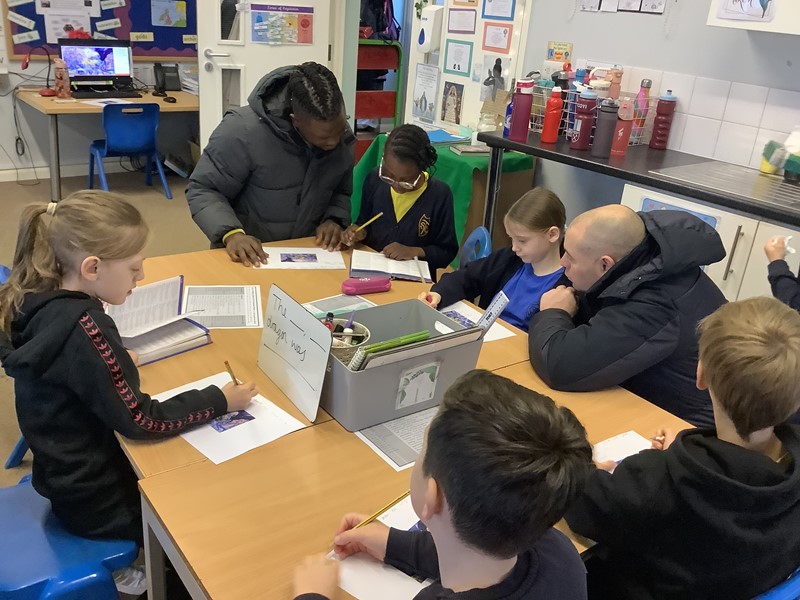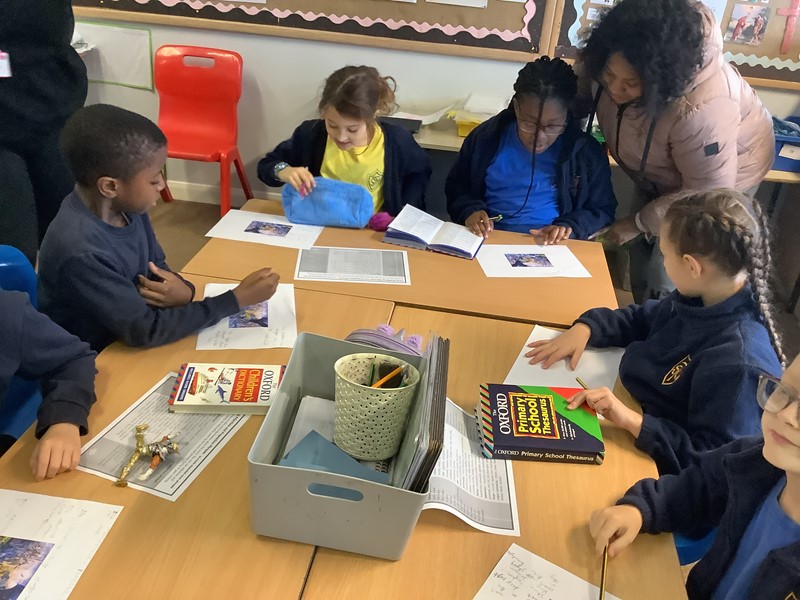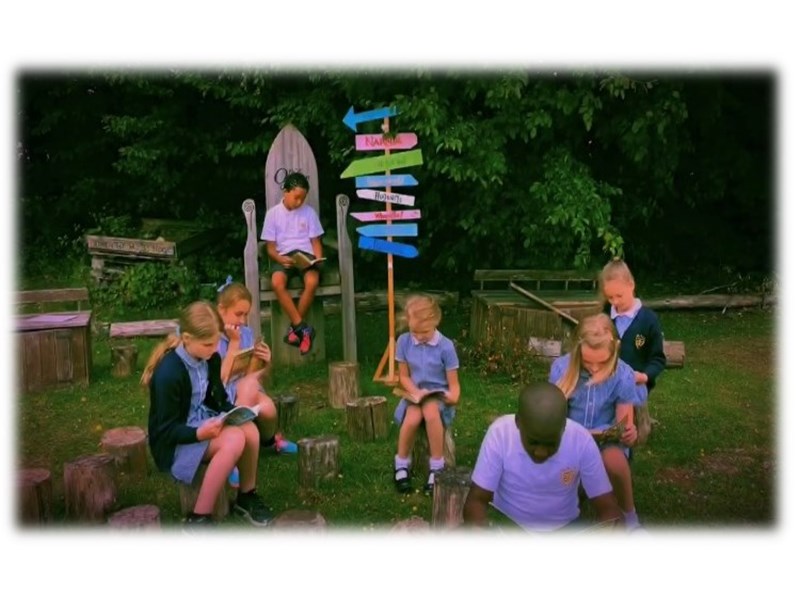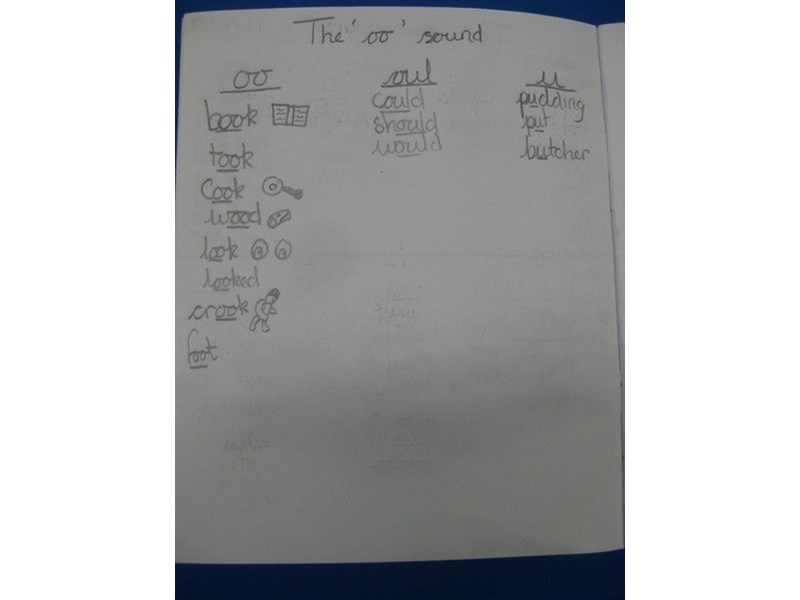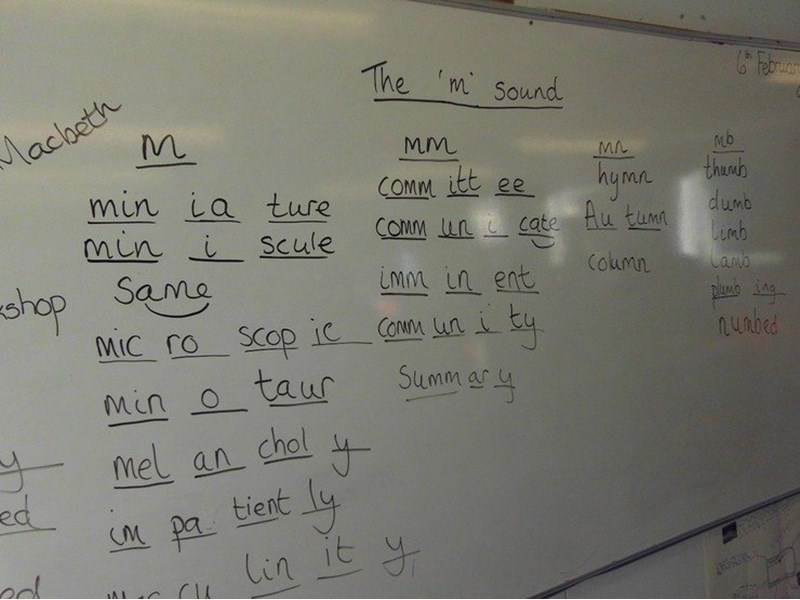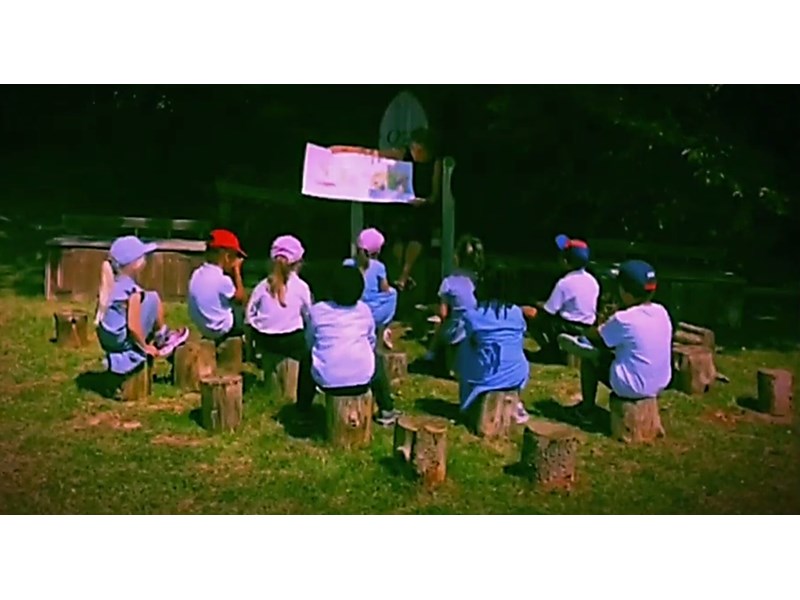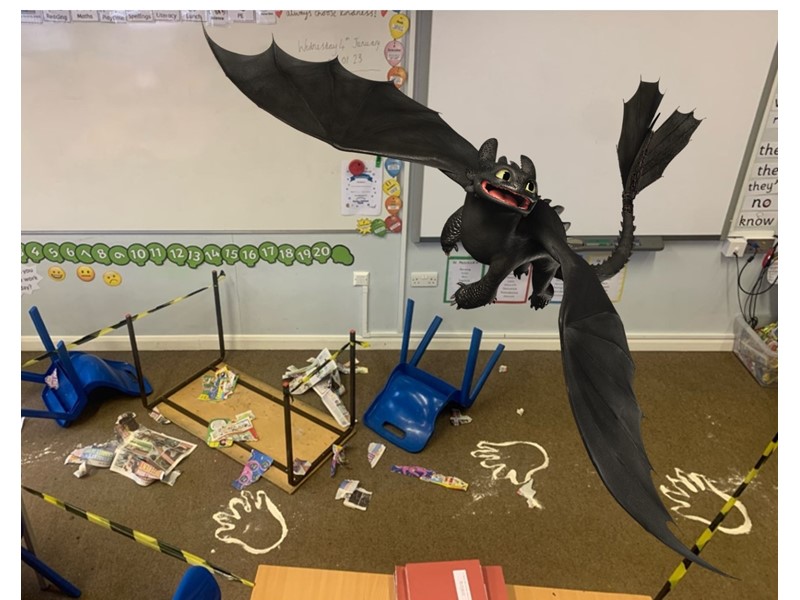English Curriculum
English Curriculum Overview
The ability to read and write effectively not only has a direct impact on progress and attainment in all areas of the curriculum but also upon children’s confidence, self-esteem and motivation to learn.
In line with the National Curriculum for English (2014), our aim is to provide a high-quality English education, which develops children’s spoken language, reading, writing and vocabulary, as well as providing a key to access the whole curriculum.
The subject coordinators have designed the curriculum to develop children’s knowledge sequentially, revisit, remember and apply old skills and learn new skills to achieve the objectives set by the 2014 National Curriculum.
The curriculum design intends to provide a balance between exposure to classic texts and ambitious language as well as engaging, modern and exciting texts, which enable children to appreciate our rich and varied literary heritage and develop the habit of reading widely and often, for both pleasure and to gain knowledge.
The intention of using a range of high-quality texts ensures a cultural capital, which expands children’s horizons and exposes them to culture, gives high aspirations, makes children aware of all future possibilities and empowers children to be socially mobile.
The English curriculum intends to develop powers of imagination, inventiveness and critical awareness in all areas of literacy.
The curriculum intends children to acquire a wide vocabulary, a secure understanding of grammar and linguistic conventions, as well as the ability to spell new words by effectively applying the spelling patterns and rules they learn throughout their time in primary school.
The teaching of varied and rich literature inspires and nurtures a culture where children take pride in their writing and fosters confident, life-long writers, communicators and fluent readers who are able to effectively articulate their ideas and emotions as members of society and the wider world.
Once you learn to read, you will be forever free.
-Frederick Douglass
Reading for Pleasure at St Thomas More
Our new library is a calming, comfortable space in which children are encouraged to try new books and discuss books that they have read. Our twelve reading ambassadors in Year 6 are on hand in the library to support children pick books that they will enjoy. In addition, we have two dedicated St Thomas More parents as volunteer librarians, which allows all classes to visit the library across two days. Furthermore, the library is open every break and lunchtime.
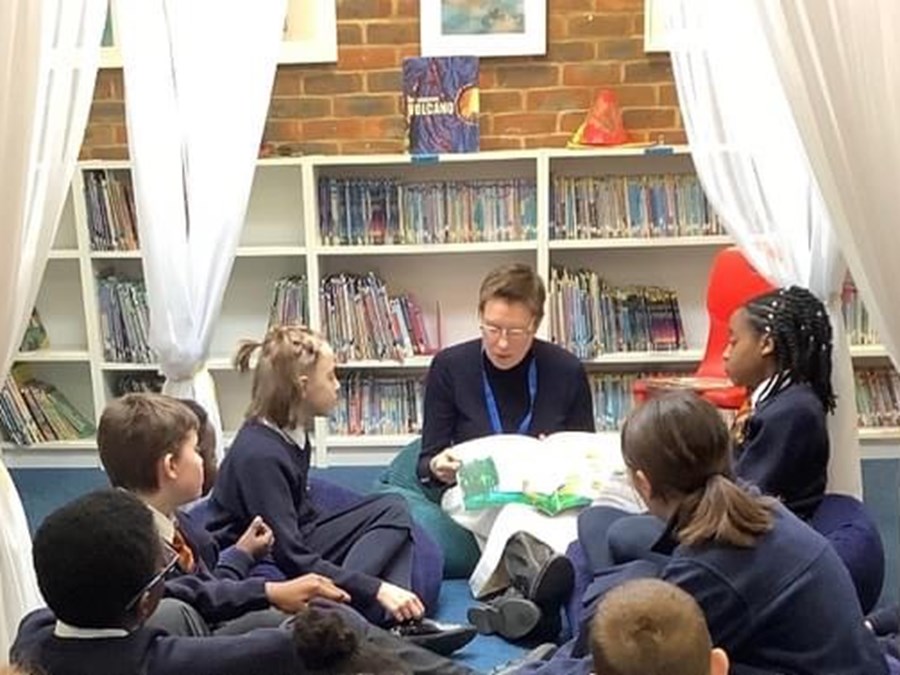
What Reading for Pleasure looks like in our school:
- Royal Society Young People's Choice Award - The Young People's Book Prize aims to promote literacy in young people and inspire them to read about science. This year our Year 6 reading ambassadors will become a judging panel and vote for the shortlisted STEM book that they think should win this prestigious award.
- Families and Fairytales - Reception parents are invited to read high quality picture books with their children (and friends) in both of our Reception classes.
- Bring Your Parent to Read - Parents are invited into classrooms for an afternoon to find out how to support their child's reading with an emphasis on questioning.
- Local Library visits - This term, Year 1 visited author Ellie Irving in Walderslade Village library as part of World Book Day.
- Online workshops - We participated in an online workshop with Michael Rosen and Jasbinder Bilan as well as illustrator Allen Fatimaharan.
- Class reads - Every class reads a high quality book, not linked to their English lessons, at the end of the day.
- Library competitions - Our parent librarians run numerous competitions throughout the year. Winners from the recent poetry competition received medals and Star Reader status for two weeks - lucky them!
- Word Millionaires - Some of our children have already achieved their Word Millionaire certificates.
- Book Donation Day - On the 18th April, children will be donating a book to the school library.
- Storytelling area - Classes can enjoy an outside storytelling session in our special storytelling area!
- World Book Day - The children have loved dressing up as their favourite book character and celebrating the wonderful words written in books they love to read.
Please follow the Events page under the Parent Information tab to read more about our author visit from Alex Bellos and how we have celebrated World Book Day.
https://st-thomasmore.medway.sch.uk/parent-information/events/
For tips on how to support your child's reading journey and promote their love of books, please follow this link. https://www.beanstalkcharity.org.uk/Listing/Category/grow-a-love-of-reading
Bring your parent to write!
The children have enjoyed sharing different genres of writing with their parents and carers. The teachers taught the process of writing and the parents were engaged alongside the children to produce writing that achieved the learning outcome.
